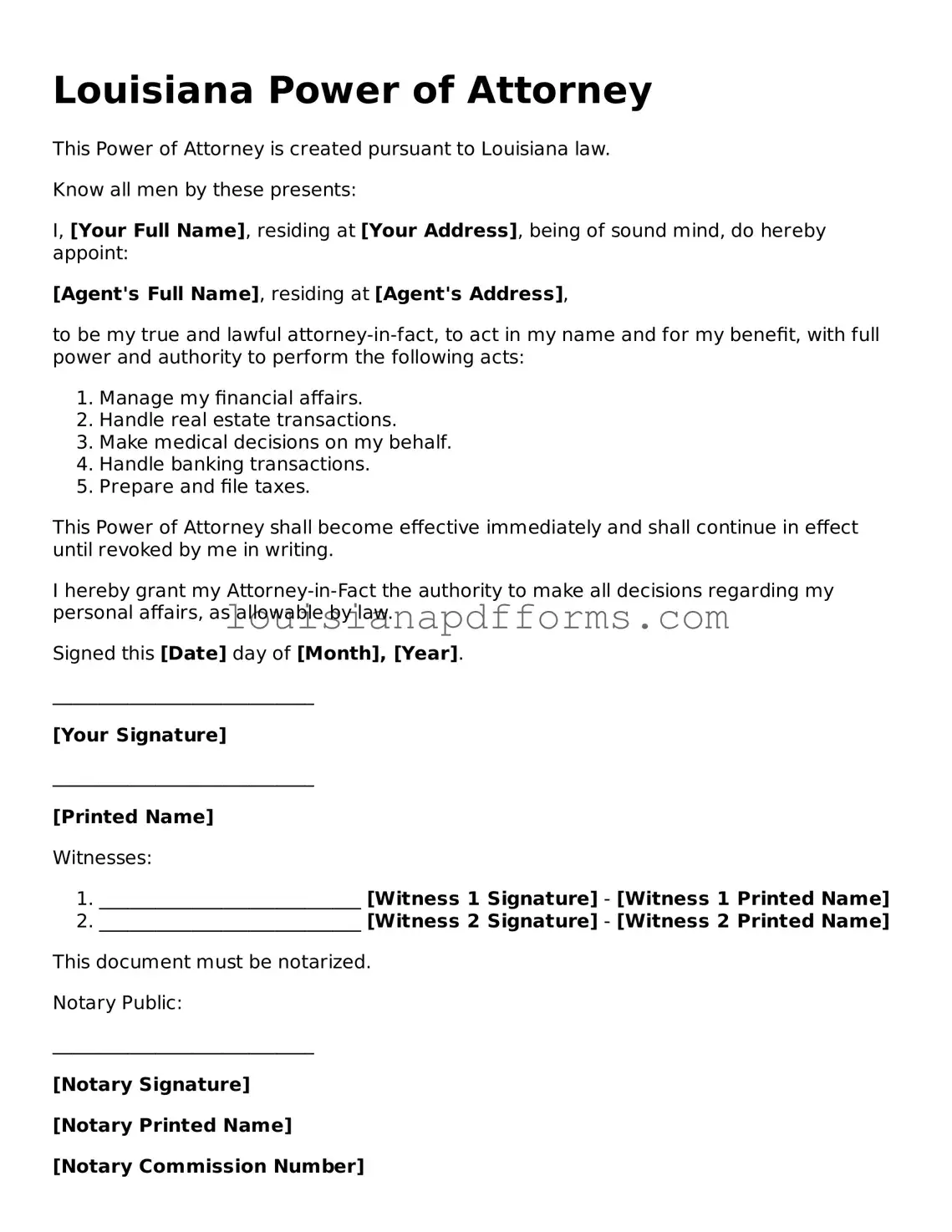Louisiana Power of Attorney Form
A Louisiana Power of Attorney form is a legal document that allows one person to grant another individual the authority to make decisions on their behalf. This form can cover various areas, including financial and medical matters. Understanding its purpose and implications is crucial for anyone considering its use.
Access My Document Now

Louisiana Power of Attorney Form
Access My Document Now

Access My Document Now
or
Free Power of Attorney
You’re halfway through — finish the form
Edit, save, and download your completed Power of Attorney online.